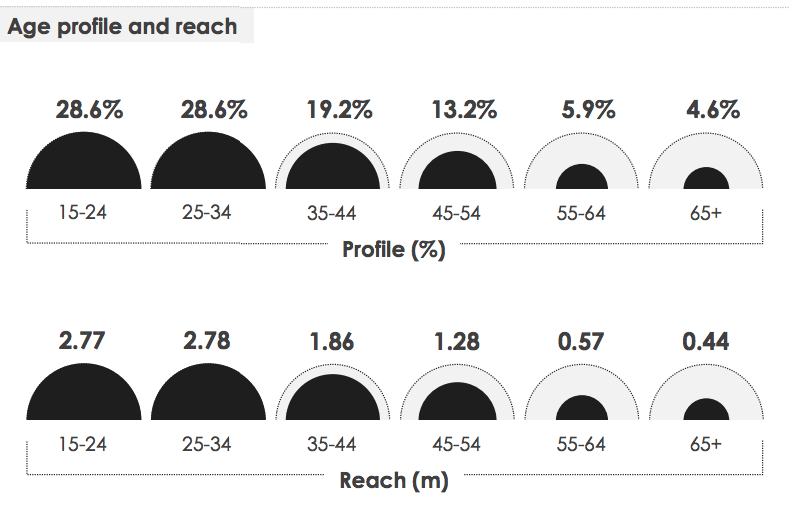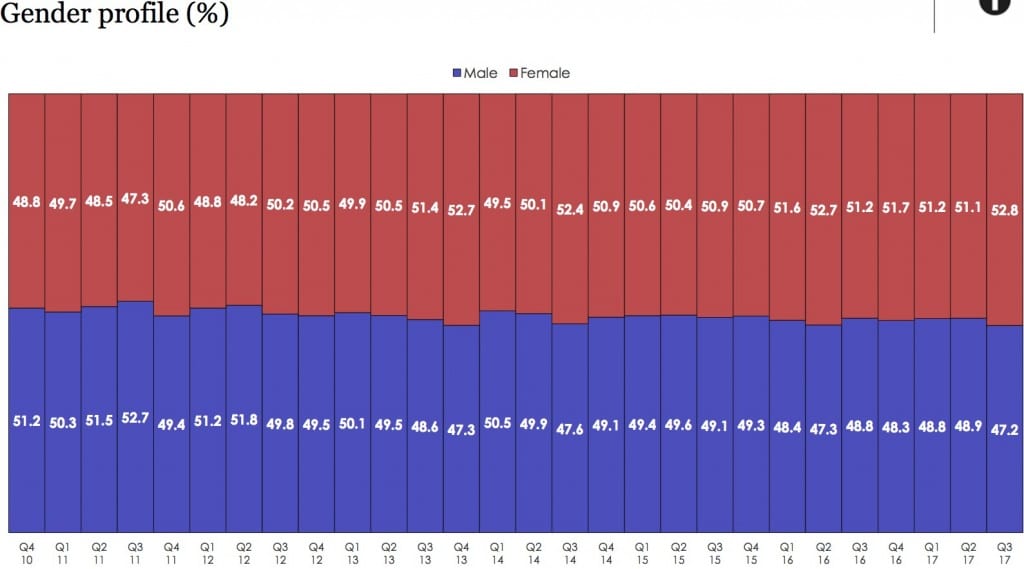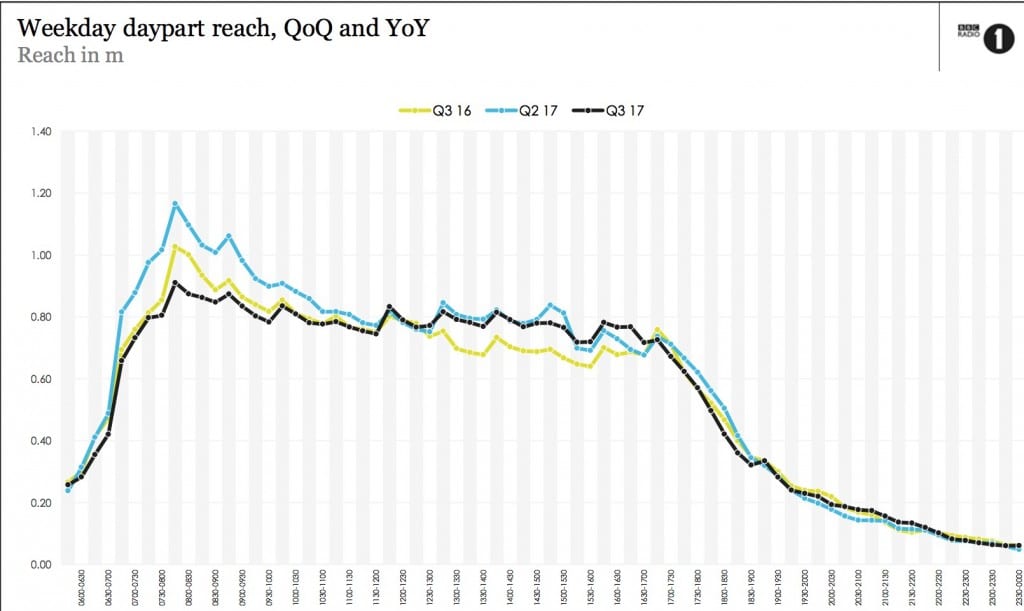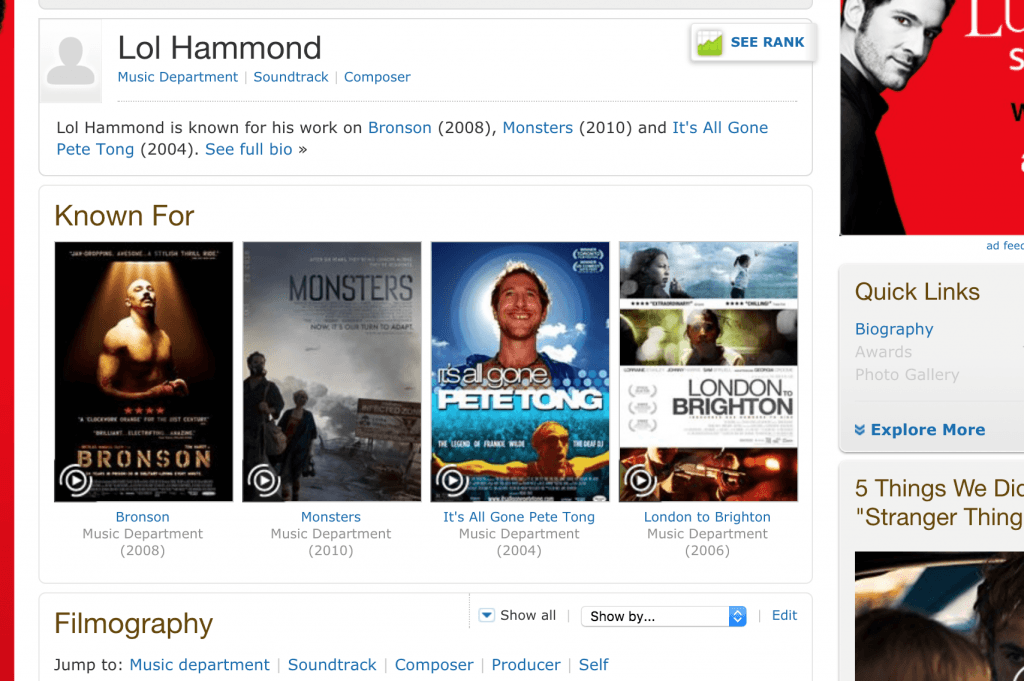Why am I talking about radio 1… (answers here)
Radio 1’s target audience is much easier to define than that of Radio 4 for example, this is because Radio 1 is demographically based meaning that they target young people in the age range between 15-29-year-olds, however what is key is that it should have a distinctive mix of music and speech-based content and be a place for new music (BBC,2016). This means that the treatment we utilise for the programme will be significantly different than say that of our original idea for radio 4 due to the fact that it will have to be a snappier piece with music beds underneath the piece and make use of music throughout the piece. It will also need to be shorter first off all due to the commissioning but also due to the fact that younger audiences will most likely lose interest.
In terms of Radio 1’s audience for Q3 RAJAR results it had 9,697,000 listeners which is a significant amount of listeners (RAJAR 2017). In regards to the makeup of this audience, it is split via the following:
This shows that most of Radio 1’s audience is within its target demographic of 15-24-year-olds being equal to that of 25-34-year-olds. In regards to the number of hours that people consumed it was 6.3 per listener which is not a bad average rate, however, has it declined from 6.7 from the previous quarter of 2017 proving that there is an uphill struggle for Radio 1 (Rajar 2017).
In terms of the gender profile of Radio 1’s listeners, it is roughly equal and has been since 2010. This ultimately means that we need to try and make our panel as gender balanced as possible with two males and two females on either side to make sure that we do not alienate half of audience due to us not having a balanced panel.
Alongside this, it is also important for us to have an understanding of when Radio 1’s listeners tune in and when they don’t even though our programme is going to be podcast based meaning that it will be accessible whenever someone wants. Despite this though the programme will still be being broadcast ‘traditionally’ from 3AM-4AM on weekday
What this shows is first of all the Radio 1’s audience has gotten smaller than it was in the second quarter of 2015, however, it also shows that Radio 1’s audience is not significantly breakfast show based with it being roughly equal until 17:30 where it starts to drop off significantly with overnight show not getting massive listenership. This does also imply a potential positive as it means that our podcast may get listened to instead of Radio’1 mainstream output.



